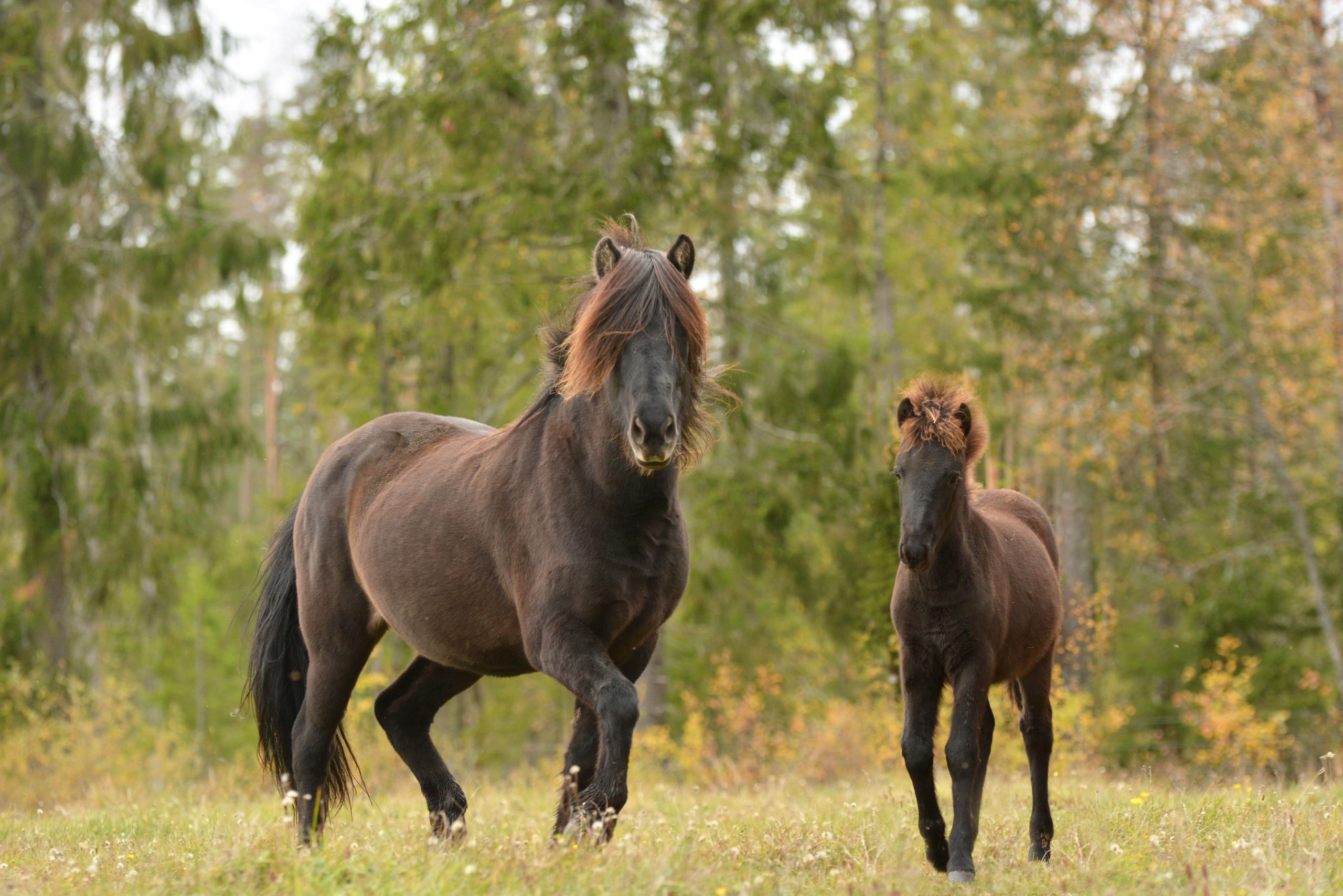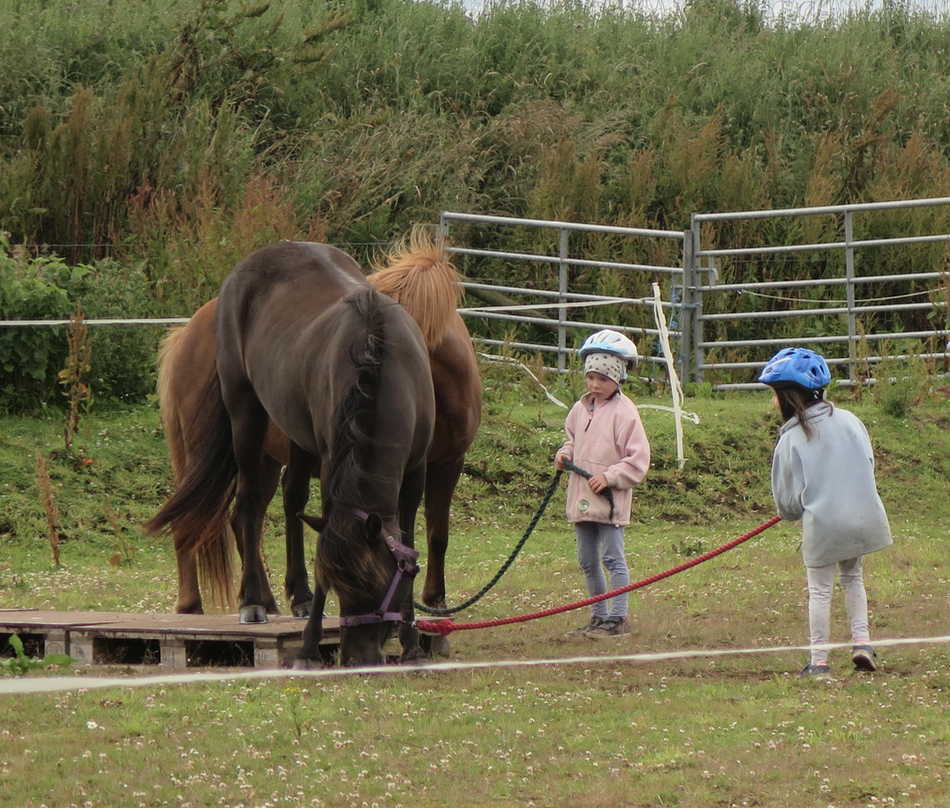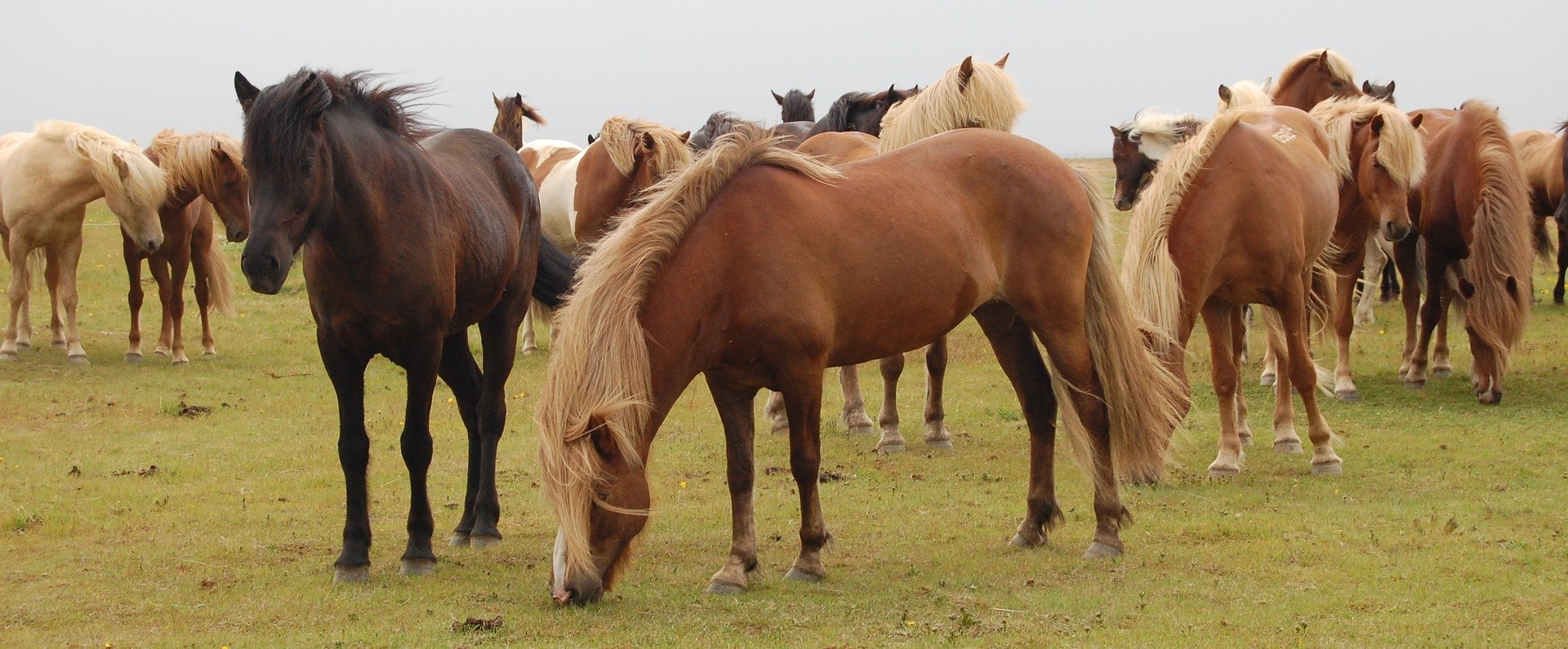Breeding Icelandic horses
Our general breeding expectations for an Icelandic horse are to have a healthy, fertile , and durable riding horse, robust yet elegant and versatile with four or five excellent gaits. The conformation should offer optimal natural balance, and the movements should be supple, high, and ground covering in all gaits, giving an elegant and powerful image. As early as 1969 FEIF established the FEIF assessment system and breeding standard for Icelandic horses, in order to attain the breeding goals and to keep the breed pure.
It is very interesting to be a breeder of Icelandic horses today. Genetic research and statistical work correlating specific conformation traits with ridden performance provide us with more information, which can help breeders make informed mating decisions. The work on the international breeding standard as well as an assessment system is never complete.

Photo: Zanna Hofvander

Education and training
Within FEIF, education is organised at a national level. Each national association manages its own educational system for the learning of riding and horsemanship for Icelandic horses.
Training the trainers
The education of trainers and instructors is the responsibility of each member organisation. FEIF neither has the means nore the wish to enforce a unified education system. But how do you bring together educational matters at an international level?
FEIF has created a system, which allows the seamless recognition of qualifications and skills for instructors across all member nations, by using a list of competencies at various levels that is expected as a minimum standard. It is called: the Education Matrix.
Welfare of the horse
FEIF and its member associations put the welfare of the horse first in everything they do. Horse welfare receives focus through education, health and equipment checks at competitions and breeding shows, research on topics such as ideal hoof length, strict doping Rules and the FEIF veterinary committee, which provides advice on the welfare of our horses.
FEIF’s code of conduct is based upon the Codes of Conduct of the Fédération Equestre Internationale (FEI). The FEI requires all those involved in international equestrian sport to adhere to the FEI Code of Conduct and to acknowledge and accept that at all times the welfare of the Horse must be paramount. Welfare of the horse must never be subordinated to competitive or commercial influences.

FEIF Hoof Study
FEIF commissioned a detailed study of hoof length and shoeing of Icelandic horses in cooperation with the University of Zurich to scientifically measure horses in competition environments. The basis of the research was to examine the type and frequency of “hoof pathologies” and relate these findings to the size of the hoof – primarily the dorsal hoof length (“toe lengh”). In this context, the main pathologies were flares, uneven height at the quarters, rings, uneven coronary bands and cracks. The outcome was clear. When the dorsal hoof length was 95mm or more, there was a significant increase in hoof problems. At 80mm, there were virtually none. The use of pads and fillers was felt to be beneficial as they provided some impact absorption on surfaces that were not hard – ie schools, tracks with suitable surfaces etc. Pads also provided protection from stones and provided a stable platform for the hoof. The research was much wider than this with the biomechanical effect of various combinations of hoof length and weights being measured on a treadmill. This all tells us a lot about what truly influences the health of our horses.
Related news
World Championships 2029 goes to Herning DK
FEIF is delighted to announce that the 2029 World Championship will return to Denmark and take place in Herning. The hosts will prioritize community, ‘good vibes’ and promise that the championships will offer more than just a competition: it aims to unite people to...
New BLUP values – autumn 2025
New BLUP values have been stored in WorldFengur but the last breeding show of the season ended in the second week of September. Now the BLUP calculations are based on scores from breeding shows as well as competition results. Results from the following competition...
FEIF committee meetings 2025 in Frankfurt
The FEIF Committee meetings 2025 took place from October 17-18 in Frankfurt, Germany. The feedback from all committees was that the discussions were constructive, interesting, and fruitful. Below you will find a short summary of the discussions in the different...
Sport Judges’ Exam 2025
On October 4, 2025 the practical part of the Sport Judges‘ exam took place on Sundabakki Islandshästar, Laholm, Sweden. 13 candidates (two for the national and eleven for the international exam) participated in this very challenging event for which the Sundabakki team...
World Championships 2025
During the World Championships random doping tests were carried out among the sport and breeding horses according to FEI Equine Anti-Doping rules. The FEI approved laboratory LGC Ltd., Newmarket Road, Cambridgeshire, which tested the collected samples reported an...
Blood Farming Controversy in Iceland Draws Renewed Criticism
The controversial practice of "blood farming" in Iceland continues to face mounting criticism, as the licence for the main operator is set to expire later this year. Around 4,000 pregnant mares are kept solely for the extraction of blood used to produce PMSG — a...
WorldFengur Survey
Dear Friends of the Icelandic Horse, you may be aware of the fact that WorldFengur, the international database which holds details of all Icelandic horses worldwide, is undergoing a major development and re-design of the software. There you can find the pedigree of...
The Icelandic Horse World Says Goodbye to Ullu Becker
Ullu Becker was a true pioneer of Icelandic horse riding from its earliest days. Since the 1950s, she devoted herself with great passion to her beloved Icelandic horses. Together with her husband Claus Becker, and with the support of Ursula Bruns, she imported her...
Save the Date – FEIF YouthCup 2026 in Rieden GER
What is the FEIF YouthCup? The FEIF YouthCup (FYC) is a unique event that combines sport, education, and international friendship. Participants not only compete but also learn and build strong connections with riders from other countries. The event promotes team...







